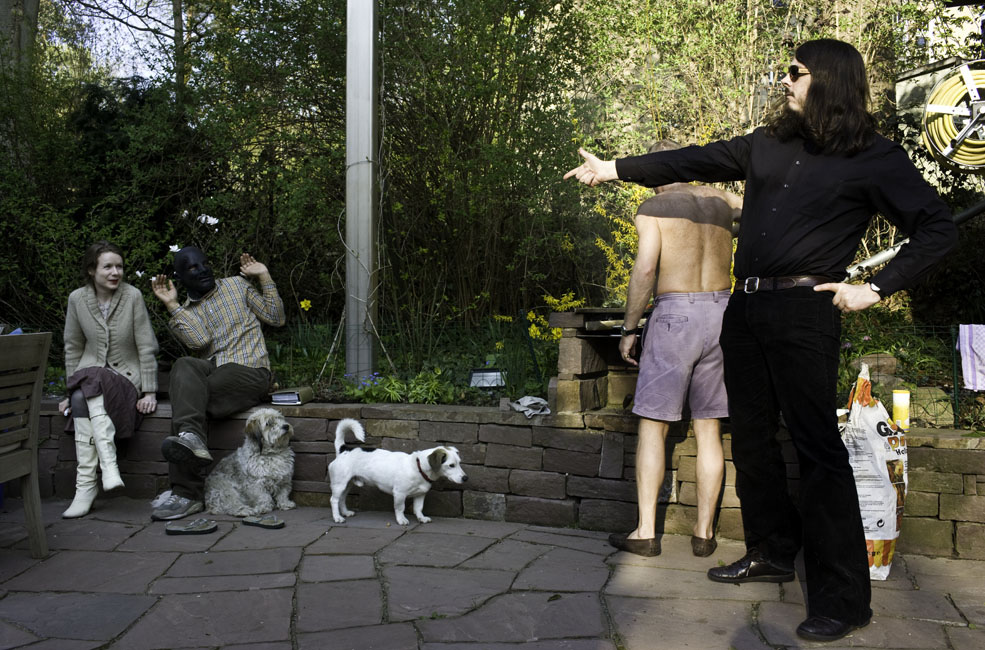Edwin Meese

Edwin "Ed" Meese III (born December 2, 1931 in Oakland, California) served as the seventy-fifth Attorney General of the United States (1985-1988).
Education and with Governor Reagan
In 1953, Meese graduated from Yale University, where he was a president of the Yale Political Union. He holds a law degree from the University of California, Berkeley. He worked as assistant district attorney of Alameda County, California before joining Governor Ronald Reagan's staff in 1967. He served as legal affairs secretary from 1967-1968 and as executive assistant and chief of staff to Governor Reagan from 1969 through 1974.
Industry and academia
From January 1975 to May 1976, he was vice president for administration of Rohr Industries in Chula Vista, California. He left Rohr to enter private law practice in San Diego County, California. He served as a professor of law at the University of San Diego from 1977 to 1981, and also was director of the Center for Criminal Justice Policy and Management.
Reagan presidency
Meese headed Reagan's transition effort following the 1980 election. During the presidential campaign, he served as chief of staff and senior issues adviser for the Reagan-Bush committee. After Reagan's election, he became counselor to the President, member of the President's Cabinet and the National Security Council from 1981 to 1985. Judge Lowell Jenson was the second-ranking official in the Justice Department under Meese.
U.S. Attorney General
Meese became Attorney General in February 1985, holding this office until August, 1988.
Iran-Contra
Meese's tenure was highly controversial. His involvement in the Iran-Contra Affair as a "counselor" and "friend" to the President, not as the nation's chief law enforcement officer, attracted the most criticism. Chapter 31 of the official Final Report of the Independent Counsel for Iran/Contra Matters reveals his direct involvement: "Meese knew that the 1985 HAWK transaction, in which the National Security Council staff and the Central Intelligence Agency were directly involved without a presidential covert-action Finding authorizing their involvement, raised serious legal questions. The President was potentially exposed to charges of illegal conduct if he was knowledgeable of the shipment and had not reported it to Congress, under the requirements of the Arms Export Control Act (AECA) and in the absence of a Finding...When Meese got answers in his inquiry that did not support his defense of the President, he apparently ignored them, as he did with Secretary of State George P. Shultz's revelation on November 22 that the President had told him that he had known of the HAWK shipment in advance." [1].
Supreme Court views
Meese also became the subject of deep controversy when he gave a speech calling for a "jurisprudence of original intent" in 1985 and criticizing the Supreme Court for straying from the original intention of the U.S. Constitution. Meese's speech was publicly rebuked by sitting Supreme Court Justices William J. Brennan and John Paul Stevens in speeches later that year, in a dispute that foreshadowed the contentious Robert Bork hearings of 1987. It has also been alleged that Meese subjected nominees for federal judgeships to a "litmus test" to gauge their fidelity to Reagan Administration judicial policy, including whether the nominee believed that Roe v. Wade had been correctly decided; Meese has repeatedly denied this.
Critic of pornography
Meese also courted controversy when he appointed the "Meese Commission" to investigate pornography in the United States; their report, released in July 1986, was highly critical of pornography and itself became a target of widespread criticism. That year, Meese Commission officials contacted convenience store chains and succeeded in demanding that widespread men's magazines such as Playboy and Penthouse be removed from shelves, [2]a ban which spread nationally [3] until being quashed with a First Amendment admonishment against prior restraint by the D.C. Federal Court in Meese v. Playboy (639 F.Supp. 581).
Corruption allegations
Accusations of ethical violations dogged Meese's tenure at Justice. He was the subject of investigations by the United States Office of the Independent Counsel on two occasions; neither of these investigations resulted in charges being presented to a grand jury. Nevertheless, Meese's critics continue to charge corruption.
Fellowships
Fellow at the Heritage Foundation, an influential conservative think tank.
Adjunct Fellow at the Discovery Institute, a conservative Christian think tank that is most widely known for its work promoting Intelligent Design and inspiring the Intelligent Design movement.
Chairman of the Board of Advisors of the Center for Constitutional Jurisprudence, the public interest law firm affiliated with The Claremont Institute.
Writings
- Judicial Tyranny: The New Kings of America? - contributing author (Amerisearch, 2005) ISBN 0975345567

